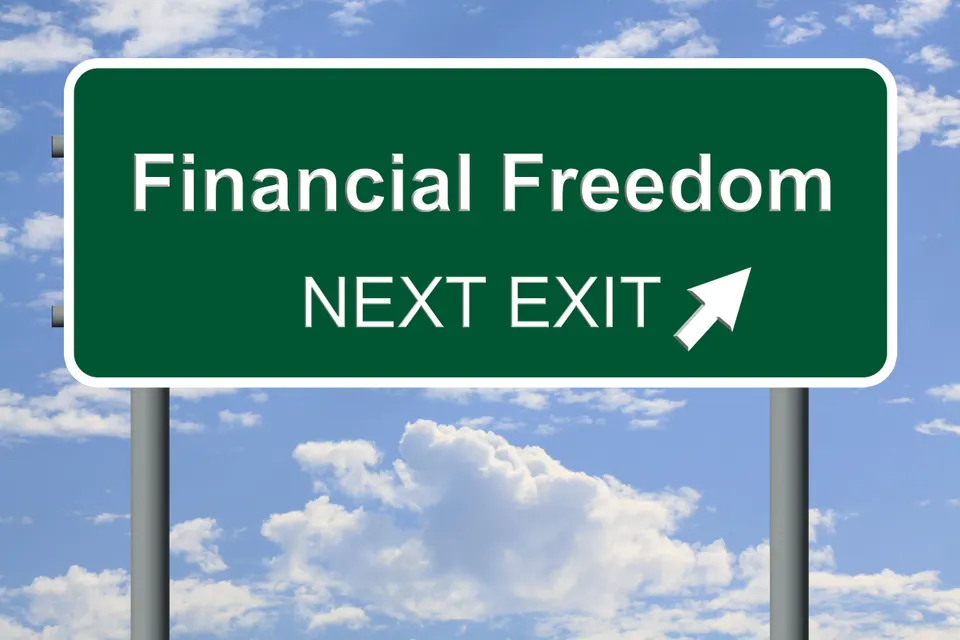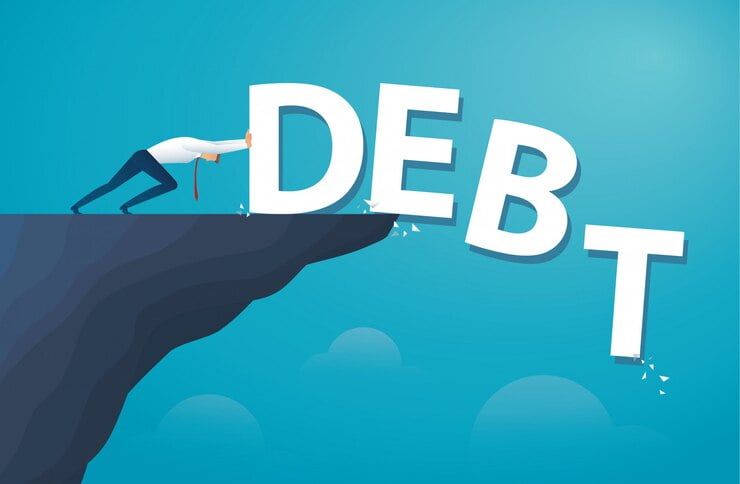The Importance of Financial Freedom: Educate Yourself Financially, Increase Your Income, Invest Wisely , Build an Emergency Fund, Eliminate Debt.

Introduction
Financial freedom is a term that many people aspire to achieve, yet its meaning might vary from person to person. In its essence, financial freedom refers to a state of financial security and independence, where an individual’s income covers their expenses and allows them to pursue their desired lifestyle without being burdened by debt or financial constraints. This article will delve into the concept of financial freedom, its significance, and practical steps to attain it.
What is Financial Freedom.?
Financial freedom is not just about having a vast amount of wealth; it’s about having control over your finances and the ability to make choices without being constrained by monetary limitations. It means having the flexibility to follow your passions, invest in personal growth, and secure your future.
The Importance of Financial Freedom
Financial freedom holds immense importance in one’s life. It provides a sense of empowerment and peace of mind, knowing that you are not living paycheck to paycheck or struggling to make ends meet. It enables you to focus on what truly matters, such as spending quality time with loved ones and pursuing your dreams.
Steps to Achieve Financial Freedom
1. Set Clear Financial Goals
The first step towards financial freedom is to establish clear and realistic financial goals. Take some time to evaluate what you want to achieve financially in the short term and long term. Whether it’s paying off debts, saving for a down payment on a house, or retiring early, having specific objectives will help you stay focused and motivated. Setting specific, measurable, achievable, relevant, and time-bound (SMART) goals will provide a clear direction for your financial journey.
2. Create a Budget and Stick to It
A very much organized budget is the foundation of financial success. Track your income and expenses diligently, and allocate your money wisely. Ensure that your spending aligns with your financial goals. By sticking to a budget, you will have better control over your finances and be able to save more effectively.
3. Build an Emergency Fund
Life is unusual, and unexpected expenses can arise at any moment. Establishing an emergency fund with three to a half year of everyday costs can provide a safety net during challenging times. This fund will prevent you from falling into debt when facing unexpected situations.
4. Eliminate Debt

Obligation can be a significant barrier to financial freedom. Prioritize paying off high-interest debts such as credit card balances and loans. Adopt a debt repayment strategy that suits your financial situation, and make consistent efforts to become debt-free.
5. Invest Wisely
Investing your money is crucial to build wealth and achieve financial freedom. Research different investment options such as stocks, bonds, mutual funds, and real estate. Diversify your investment portfolio to spread risk, and consider seeking advice from a financial advisor to make informed decisions.
6. Increase Your Income
Finding ways to boost your income can expedite your journey towards financial freedom. Consider negotiating a raise at work, exploring new job opportunities, or starting a side business. The extra income can be channeled towards your savings and investments.
7. Educate Yourself Financially
Monetary proficiency is essential for making informed decisions about money. Take the time to read books, attend seminars, and educate yourself about personal finance and investment strategies. The more you know, the better equipped you will be to make wise financial choices.
8. Set Realistic Milestones
Breaking down your long-term financial goals into smaller, achievable milestones can provide a sense of accomplishment along the way. Celebrate each milestone you reach, and use it as motivation to continue progressing towards your ultimate financial objectives.
9. Review and Adjust Your Plan Regularly
Financial freedom is not a static destination; it requires continuous evaluation and adjustment. Regularly review your financial plan and make necessary changes based on life events, economic conditions, or shifts in your priorities.
10. Practice Discipline and Patience
Achieving financial freedom is a journey that demands discipline and patience. Avoid impulsive financial decisions and stay committed to your goals, even when faced with obstacles or setbacks.
11. Surround Yourself with Like-Minded Individuals
Seeking support from people who share similar financial aspirations can be motivating and empowering. Join financial forums, attend networking events, or participate in financial workshops to connect with like-minded individuals and exchange valuable insights.
12. Protect Your Assets
Safeguarding your assets is crucial in maintaining financial security. Obtain appropriate insurance coverage to protect yourself, your family, and your investments from unforeseen circumstances.
13. Stay Debt-Free
Once you become debt-free, strive to remain in that state. Avoid incurring unnecessary debts, and if you need to borrow, do so responsibly and with a clear plan for repayment.
14. Plan for Retirement
Thinking about retirement from an early stage will ensure a comfortable and worry-free future. Contribute regularly to retirement accounts to secure your financial independence during your golden years.
15. Seek Professional Advice
If navigating the complexities of finance seems overwhelming, don’t hesitate to seek guidance from a financial advisor. A professional can offer personalized advice based on your unique circumstances, guiding you towards the most suitable path to financial freedom.
The Benefits of Financial Freedom
- Reduced Stress and Anxiety
Achieving financial freedom reduces the stress and anxiety associated with financial uncertainty. You can face life’s challenges with greater resilience and a positive outlook.
- More Time for Personal Pursuits
With financial freedom, you can focus on activities that bring you joy and fulfillment. Whether it’s traveling, pursuing hobbies, or spending time with family, you have the freedom to enjoy life to the fullest.
- Ability to Help Others
Financial freedom empowers you to make a difference in the lives of others. You can contribute to charitable causes or support friends and family in need without straining your own financial situation.
- Peace of Mind for Retirement
Having financial security provides peace of mind during retirement. You can retire comfortably and enjoy the fruits of your labor without worrying about financial hardships.
What’s the point…
Financial freedom is not an unattainable dream; it is a goal that anyone can strive for with the right mindset and actions. By setting clear goals, managing finances wisely, and staying committed, you can achieve financial freedom and live life on your terms. Remember, it’s not just about accumulating wealth; it’s about having the freedom to pursue your passions and live a fulfilling life.
FAQs
Q1: What age is best to start working towards financial freedom?
Ans: The earlier you start, the better. However, it’s never too late to begin your journey towards financial freedom.
Q2: How much should I save each month to achieve financial freedom?
Ans: The amount you should save depends on your financial goals and current income. Aim to save a significant portion of your earnings while still meeting essential expenses.
Q3: Is financial freedom only about being rich?
No, financial freedom is not solely about being rich. It’s about managing your finances well and having control over your financial choices.
Q4: Can anyone achieve financial freedom?
Ans : Yes, anyone can achieve financial freedom with discipline, perseverance, and smart financial planning.
Q5: How can I balance enjoying life today and saving for the future?
Ans : Achieving financial freedom doesn’t mean sacrificing present enjoyment entirely. Budget for both current experiences and future savings to strike a balance between the two.
